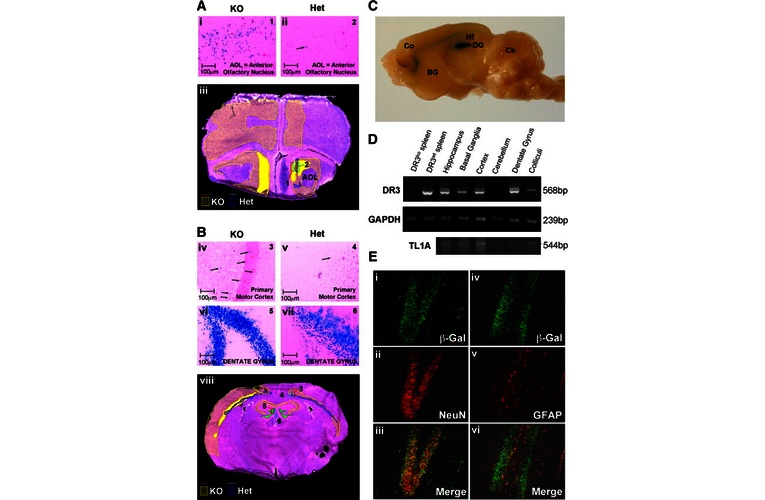Cat. #151474
DR3-/- KO Mouse
Cat. #: 151474
Sub-type: Mouse
Availability: 8-10 weeks
Disease: Progressive neurological disease
Model: Knock-Out
This fee is applicable only for non-profit organisations. If you are a for-profit organisation or a researcher working on commercially-sponsored academic research, you will need to contact our licensing team for a commercial use license.
Contributor
Inventor: Eddie Wang ; Mike Owen
Institute: Cancer Research UK, London Research Institute: Lincoln's Inn Fields
Primary Citation: Wang et al. 2001. Mol Cell Biol. 21(10):3451-61. PMID: 11313471
Tool Details
*FOR RESEARCH USE ONLY (for other uses, please contact the licensing team)
- Tool name: DR3-/- KO Mouse
- Research fields: Apoptosis and autophagy;Cancer;Cell biology;Cell signaling and signal transduction;Genetics;Immunology
- Tool sub type: Mouse
- Disease: Progressive neurological disease
- Model: Knock-Out
- Conditional: No
- Description: The DR3-/- mouse exhibits complete knockout of DR3, a death domain-containing tumour necrosis factor receptor, which mediates one of the key regulators of the cell division cycle. Negative selection and anti-CD3-induced apoptosis are significantly impaired in DR3-null mice. In contrast, both superantigen-induced negative selection and positive selection are normal. The pre-T-cell receptor-mediated checkpoint, which is dependent on TNFR signaling, is also unaffected in DR3-deficient mice. These data reveal a nonredundant in vivo role for this TNF receptor family member in the removal of self-reactive T cells in the thymus. Other behavioral studies on DR3 KO mice indicated that DR3 plays a key nonredundant role in the retention of normal motor control function during aging in mice and implicate DR3 in progressive neurological disease
- Application: In vivo studies of DR3-induced apoptosis & function; in vivo studies of negative T cell selection and development
- Genetic background: A DR3 targeting vector, replacing the entire DR3 coding region with a loxP flanked resistance cassette, was transfected into GK129 ES cells. Correctly targeted ES cells were injected into C57BL/6 blastocysts. Chimeric offspring were bred with C57BL/6 mice to yield mice heterozygous for the mutant allele.
- Phenotype: Immune abnormalities (T cell development);
- Zygosity: Homozygous
- Production details: A DR3 targeting vector, replacing the entire DR3 coding region with a loxP flanked resistance cassette, was transfected into GK129 ES cells. Correctly targeted ES cells were injected into C57BL/6 blastocysts. Chimeric offspring were bred with C57BL/6 mice to yield mice heterozygous for the mutant allele.
Handling
- Shipping conditions: Dry Ice
Target Details
- Target: DR3 (Death Domain Receptor 3)
- Target background: DR3 (Ws1, Apo3, LARD, TRAMP, TNFSFR12) is a member of the death domain-containing tumor necrosis factor receptor (TNFR) superfamily, members of which mediate a variety of developmental events including the regulation of cell proliferation, differentiation, and apoptosis
Application Details
- Application: In vivo studies of DR3-induced apoptosis & function; in vivo studies of negative T cell selection and development
References
- Twohig et al. 2010. J Neurosci. 30(10):3782-92. PMID: 20220013
- Wang et al. 2001. Mol Cell Biol. 21(10):3451-61. PMID: 11313471



